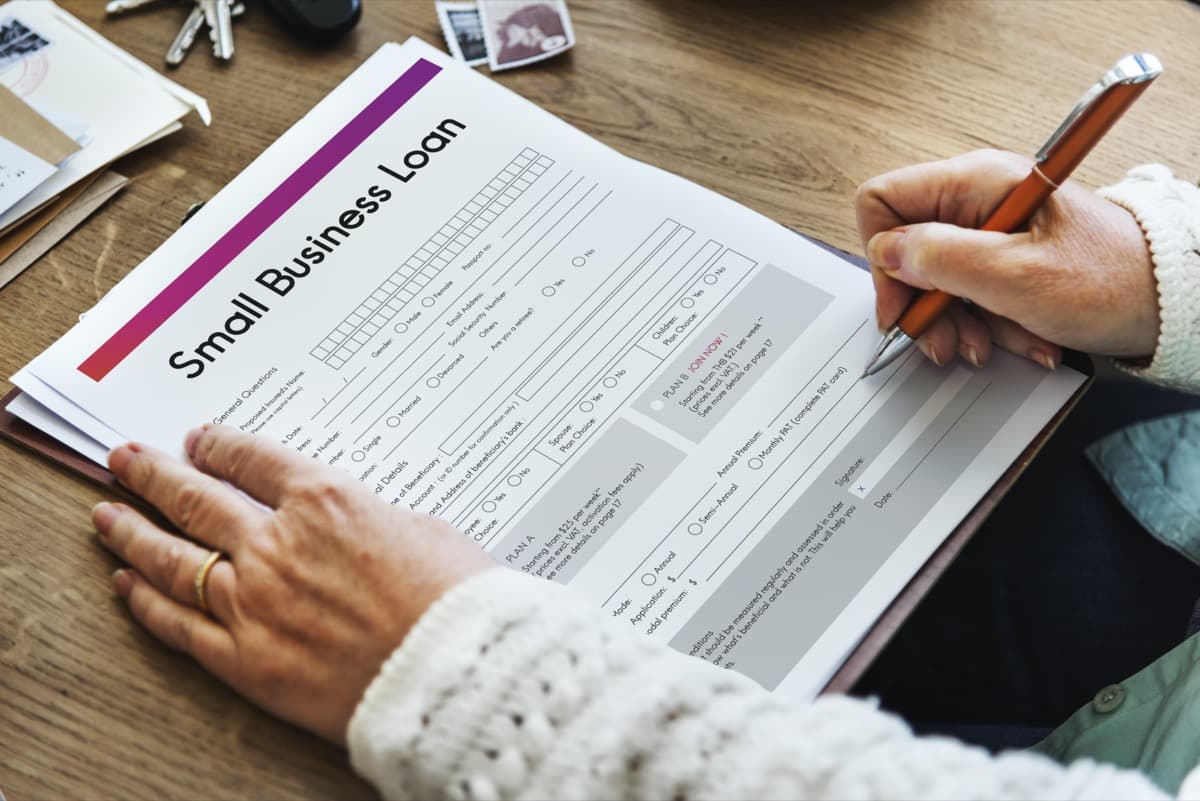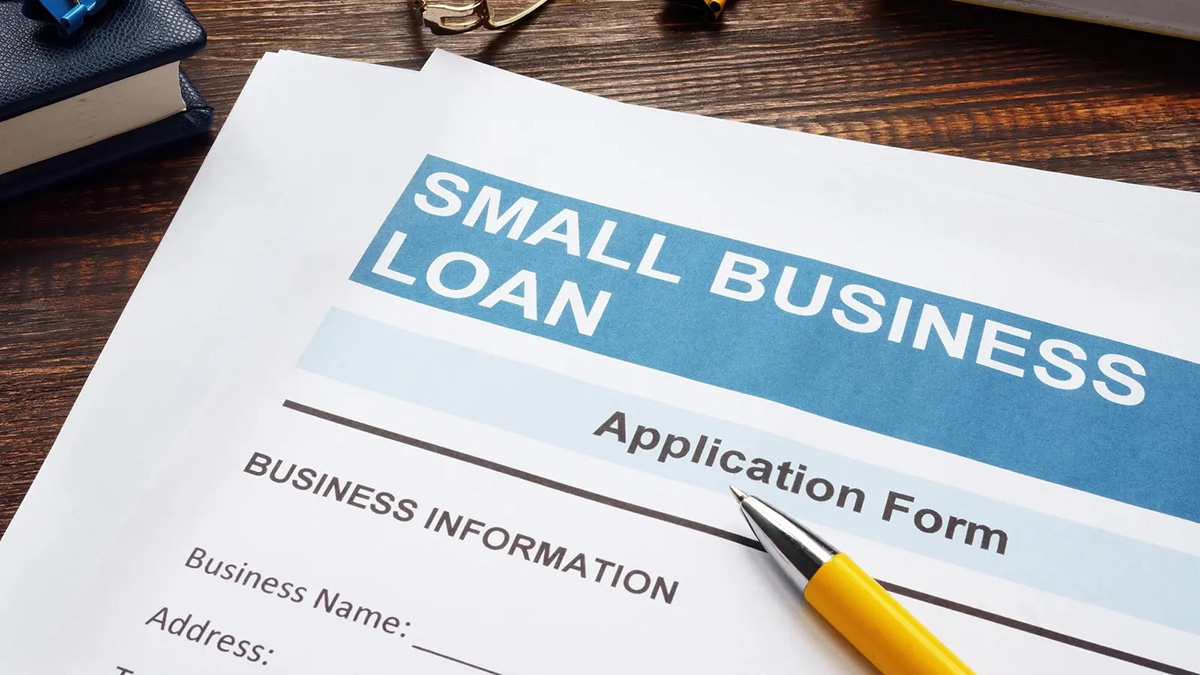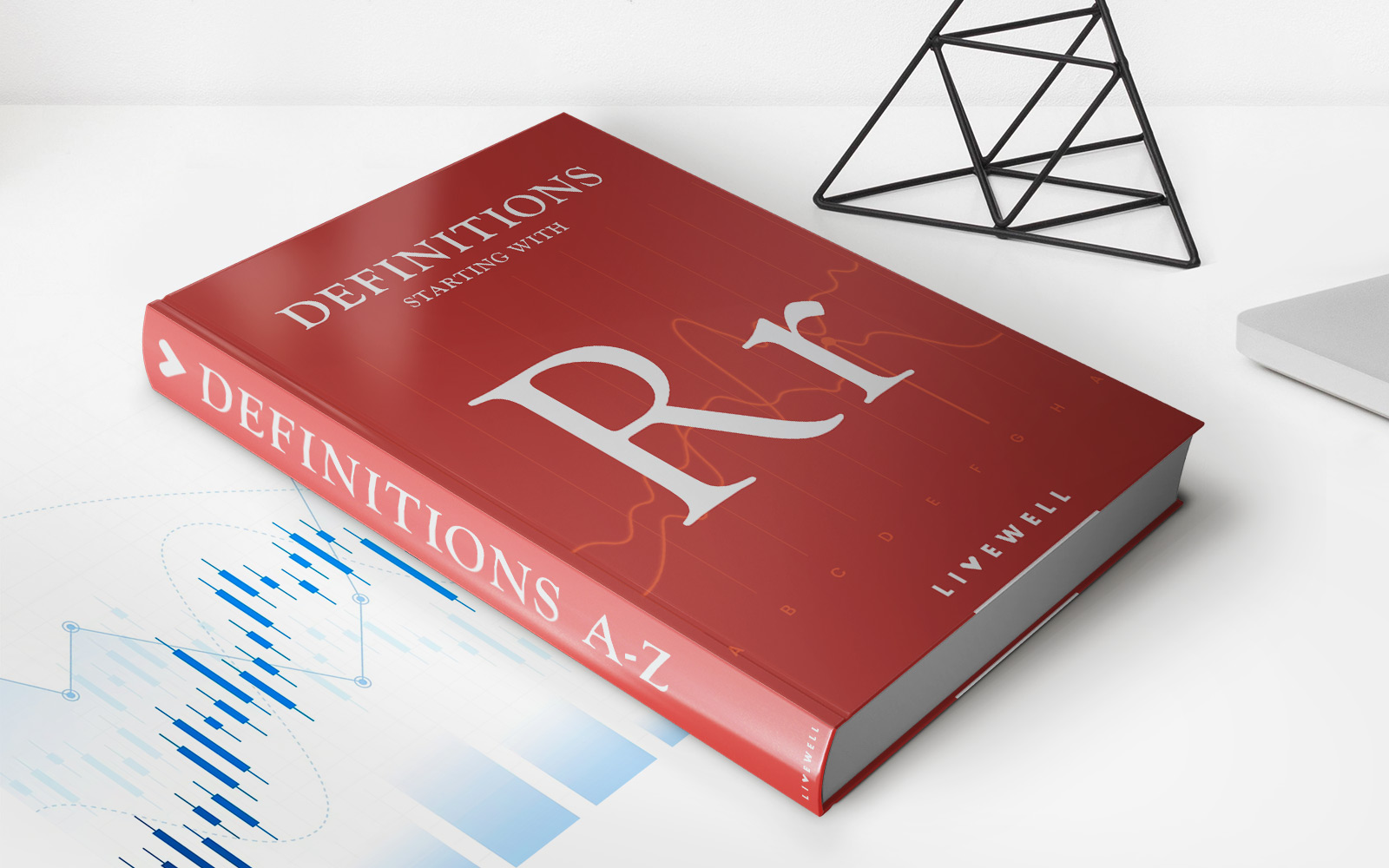Home>Finance>What Happens To Small Business Loan If Business Fails?


Finance
What Happens To Small Business Loan If Business Fails?
Modified: December 30, 2023
Discover what happens to small business loans if a business fails. Understand how finance is affected and what steps can be taken.
(Many of the links in this article redirect to a specific reviewed product. Your purchase of these products through affiliate links helps to generate commission for LiveWell, at no extra cost. Learn more)
Table of Contents
Introduction
Starting and running a small business can be both exciting and challenging. Entrepreneurs often rely on small business loans to finance their ventures, whether it’s for purchasing inventory, hiring employees, or expanding operations. However, not all businesses succeed, and sometimes, despite best efforts, they may have to close down.
When a small business fails, there are several repercussions to consider. One of the primary concerns is what happens to the small business loan that was taken out to support the business. Will the business owner still be responsible for repaying the loan? What are the possible outcomes and consequences?
In this article, we will explore what happens to a small business loan if the business fails. We will discuss the impact on personal guarantees, the recovery of collateral, debt collection proceedings, and the potential consequences of bankruptcy or liquidation. Understanding these factors can help entrepreneurs make informed decisions and navigate the complexities of business finance.
Overview of Small Business Loans
Before delving into what happens to a small business loan if the business fails, let’s first understand the basics of small business loans.
Small business loans are financial products specifically designed to help entrepreneurs and business owners fund their ventures. These loans can come from various sources, such as banks, credit unions, online lenders, or government programs. The loan amount and terms will vary depending on the lender, the borrower’s creditworthiness, and the purpose of the loan.
Small business loans can be used for a range of purposes, including starting a new business, purchasing equipment or inventory, covering operating expenses, or expanding an existing business. The loan can be secured or unsecured, meaning it may or may not require collateral.
When a business applies for a small business loan, the lender typically assesses the borrower’s credit history, business plan, financial statements, and other relevant factors to determine the loan’s eligibility and terms. If approved, the business owner receives the funds and begins making regular repayments, usually in the form of monthly installments, over a predetermined period.
It is important to note that small business loans are legal obligations that the borrower must repay in accordance with the agreed terms. These loans are treated as separate entities from the business itself, meaning the business owner is personally responsible for the loan even if the business fails.
Now that we have a general understanding of small business loans, let’s explore the possible outcomes if a business fails and the impact it can have on the loan.
Possible Outcomes if a Business Fails
When a small business fails, it can have significant consequences for the business owner, employees, and stakeholders. In terms of the small business loan, there are several potential outcomes that may occur.
1. Personal Liability: If the business owner provided a personal guarantee for the small business loan, they become personally liable for repaying the loan even if the business fails. This means that the lender can pursue the business owner’s personal assets to recover the outstanding debt.
2. Loan Repayment: In most cases, the loan agreement remains valid, and the business owner is still obligated to repay the loan as per the agreed terms. The lender will continue to expect timely payments until the loan is fully repaid, regardless of the business’s success or failure.
3. Debt Restructuring: If the business owner is facing financial difficulties due to the business’s failure, they may negotiate with the lender to restructure the loan. This could involve extending the loan term, reducing the interest rate, or adjusting the repayment schedule to make it more manageable.
4. Loan Forgiveness: In rare cases, some lenders may offer loan forgiveness or partial loan forgiveness if the business fails. This usually happens in situations where the lender believes that recovering the full loan amount is improbable or where the business owner demonstrates genuine financial hardship.
5. Settlement or Negotiation: If the business owner cannot repay the loan in full, they may negotiate a settlement with the lender. This typically involves reaching a compromise on the outstanding amount, either through a lump sum payment or a structured settlement plan.
It is crucial for business owners in this situation to communicate openly and proactively with the lender. By explaining the circumstances and demonstrating a willingness to find a mutually beneficial solution, it may be possible to reach a resolution that minimizes financial strain and allows for a fresh start.
Next, we will discuss the impact of personal guarantees and the role they play if a business fails.
Impact on Personal Guarantees
Personal guarantees play a significant role in small business loans and can have a substantial impact if the business fails. A personal guarantee is a legally binding agreement that holds the business owner personally responsible for the loan repayment, even if the business itself cannot fulfill the obligation.
When a business owner provides a personal guarantee for a small business loan, they essentially pledge their personal assets (such as homes, vehicles, or savings) as collateral to secure the loan. This gives the lender the legal right to pursue the business owner’s personal assets in case of loan default.
If a business fails and is unable to repay the loan, the lender can invoke the personal guarantee to recover the outstanding debt from the business owner. This can have severe consequences, as it can lead to the liquidation or seizure of personal assets to satisfy the debt.
The impact of personal guarantees varies depending on the specific terms outlined in the loan agreement. Some personal guarantees have “limited liability” clauses, which restrict the lender from pursuing all of the business owner’s personal assets. Instead, the lender may only be able to go after specific assets outlined in the agreement.
It is important for business owners to carefully review the terms of their personal guarantees before signing the loan agreement. Seeking legal advice to fully understand the implications and potential risks is highly recommended. Additionally, it’s crucial to explore other potential options, such as negotiating with the lender or considering debt restructuring, to mitigate the impact on personal guarantees.
While personal guarantees can be a significant risk, they are often required by lenders to mitigate their own risk in lending to small businesses. It is essential for business owners to evaluate their personal financial situation and the potential consequences of a personal guarantee before taking on a small business loan.
Next, we will examine the potential recovery of collateral and how it can impact the outcome if a business fails.
Recovery of Collateral
Collateral is an asset or property pledged by the borrower to secure the small business loan. In the event of a business failure and loan default, the lender has the right to seize and sell the collateral to recover the outstanding debt.
Collateral can take various forms, depending on the type of loan and the agreement between the borrower and the lender. Common types of collateral for small business loans include real estate, equipment, inventory, accounts receivable, or other valuable assets owned by the business.
If a business fails and is unable to repay the loan, the lender may initiate the process of recovering the collateral. This typically involves assessing the value of the collateral and selling it through auction or private sale. The proceeds from the sale are then used to repay the outstanding loan balance.
It is important to note that the order in which various creditors are paid from the proceeds of collateral recovery may be governed by bankruptcy laws or other legal regulations. This means that the lender may not necessarily receive the full repayment from the collateral, particularly if there are other debts or claims against the business.
Recovering collateral can have significant implications for both the lender and the business owner. For the lender, it serves as a means to mitigate their risk and recoup at least a portion of the loan amount. However, for the business owner, losing the collateral can result in further financial hardship and may hinder their ability to start a new business or recover from the failed venture.
When considering collateral for a small business loan, it is essential for business owners to carefully evaluate the potential risks and consequences. Understanding the value of the collateral and its importance to the business’s operations can help mitigate the impact if the business fails and collateral recovery becomes necessary.
Next, we will explore debt collection proceedings and their potential implications for small business owners.
Debt Collection Proceedings
When a small business fails and is unable to repay a loan, the lender has various options to pursue debt collection. Debt collection proceedings are legal actions taken by the lender to recover the outstanding loan balance. These proceedings can have significant implications for small business owners.
The specific debt collection process can vary depending on the jurisdiction and the terms outlined in the loan agreement. However, some common debt collection methods include:
1. Collection Agencies: Lenders may hire collection agencies to handle the debt collection process on their behalf. These agencies are specialized in recovering outstanding debts and may employ various tactics, such as phone calls, letters, and negotiating repayment plans with the borrower.
2. Legal Action: If other debt collection methods are unsuccessful, the lender may initiate legal action against the borrower. This can involve filing a lawsuit to obtain a judgment against the business owner and enforce debt repayment. Legal action can be time-consuming, costly, and may result in additional legal fees and court costs.
3. Wage Garnishment: In some cases, the lender may pursue wage garnishment, which involves legally deducting a portion of the borrower’s wages to repay the outstanding debt. Wage garnishment laws vary by jurisdiction and may have limits on the percentage of wages that can be garnished.
4. Bank Account Levies: If the borrower has funds in a bank account, the lender may seek a bank account levy, which allows them to seize the funds to satisfy the debt. However, there may be legal limits on the amount that can be levied, and some funds may be exempt from seizure.
Debt collection proceedings can be stressful and add an additional burden to small business owners already facing the challenges of a failed business. It is important for business owners to be aware of their rights and responsibilities during the debt collection process. Seeking legal advice and understanding the relevant laws and regulations can help navigate this situation effectively.
Next, we will discuss the potential consequences of bankruptcy and liquidation if a small business fails.
Bankruptcy and Liquidation
When a small business reaches a point of financial distress and is unable to repay its debts, bankruptcy may be considered as an option. Bankruptcy is a legal process that provides relief to individuals or businesses unable to meet their financial obligations.
There are different types of bankruptcy, but two common forms for businesses are Chapter 7 and Chapter 11 bankruptcy.
In Chapter 7 bankruptcy, also known as liquidation bankruptcy, the business’s assets are sold, and the proceeds are used to repay the creditors. Once the assets have been liquidated, the business ceases operations, and its debts are discharged, providing a fresh start for the business owner.
On the other hand, Chapter 11 bankruptcy, also known as reorganization bankruptcy, allows a business to continue its operations while restructuring its debts. The business develops a plan to repay its creditors over time, often with reduced debt amounts or extended payment terms. This gives the business owner a chance to reorganize and potentially revive the business.
When a small business files for bankruptcy, it can have various implications for the small business loan. These may include:
1. Discharge of Debt: In a Chapter 7 bankruptcy, the small business loan debt may be discharged, relieving the business owner of the obligation to repay the loan. However, this discharge may not apply if the business owner provided a personal guarantee or if the loan was secured with collateral.
2. Repayment Plans: In a Chapter 11 bankruptcy, the business may develop a repayment plan that includes the small business loan. This plan outlines how the loan will be repaid, potentially with modified terms. It is subject to court approval and must be feasible based on the business’s financial situation.
3. Impact on Personal Guarantees: Bankruptcy can also affect personal guarantees. In some cases, bankruptcy may release the business owner from personal liability, depending on the circumstances and the type of bankruptcy filed.
It is important to note that bankruptcy should be considered as a last resort and should only be pursued after careful evaluation of the business’s financial situation and the potential impact on the business owner’s creditworthiness and future prospects.
Consulting with a bankruptcy attorney or financial advisor experienced in small business matters is essential to understand the specific implications of bankruptcy and determine the best course of action if a small business fails.
Next, we will conclude our discussion on what happens to a small business loan if the business fails.
Conclusion
Navigating the world of small business loans can be both rewarding and challenging. Understanding what happens to a small business loan if the business fails is crucial for entrepreneurs who want to make informed decisions and manage their financial responsibilities.
In summary, if a small business fails, the business owner may still be personally liable for repaying the loan, especially if they provided a personal guarantee. Debt collection proceedings, such as hiring collection agencies or initiating legal action, may be used by lenders to recover the outstanding debt. Recovery of collateral, such as seizing and selling assets, is another avenue to satisfy the debt. Additionally, bankruptcy can provide relief and options for restructuring or discharging debts, depending on the bankruptcy type.
Business owners must carefully review their loan agreements, including any personal guarantees and collateral arrangements, before securing a loan. Seeking legal advice and exploring alternatives, such as debt restructuring or negotiations with the lender, can help mitigate the impact if the business fails.
Ultimately, while the consequences of a failed business can be challenging, it’s essential for entrepreneurs to remember that failure is a part of the business journey. Learning from mistakes, seeking support, and taking proactive steps towards a fresh start can pave the way for future success.
By understanding the potential outcomes and consequences of a failed business, entrepreneurs can make informed decisions and navigate the complexities of small business loans with confidence.
Remember, each situation is unique, and it’s important to consult with financial advisors or experts who can provide guidance tailored to individual circumstances.
So, whether you’re starting a small business or considering a small business loan, it’s important to be aware of the possibilities and implications if things don’t go as planned.














